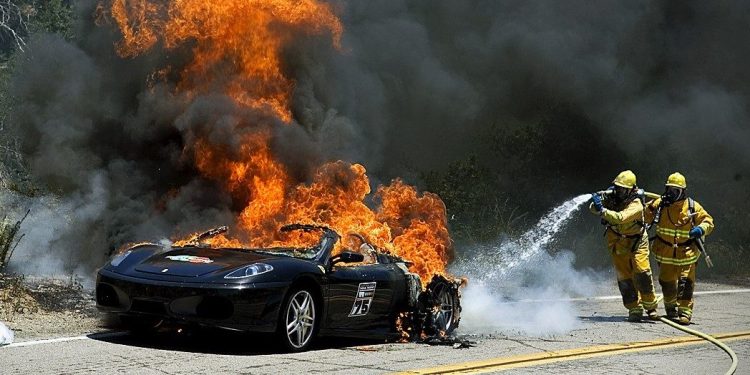Study claims hybrids start more fires than petrol cars & EVs combined
Words: Matthew Hansen
Electric vehicles have been subject to plenty of scrutiny about how often they catch fire, and the difficulty around taming these fires versus those caused in a traditional internal combustion vehicle.
While some of this scrutiny is warranted, following high-profile cases like General Motors’ significant Chevrolet Bolt recalls from 2021, as well as Hyundai’s recall of the Kona Electric, much of the scrutiny also stems from misinformation shared by EV cynics.
Now, in what shapes up as a bit of a win for the electric car genre, a study claims that electric vehicles are the least likely to catch fire, with hybrid vehicles more likely to catch fire than EVs and pure ICE vehicles combined.
Conducted by AutoinsuranceEZ, the US-based study utilised data pulled from America’s National Transportation Safety Board (NTSB), the Bureau of Transportation Statistics, and recall information from the US government from 2021.
The study unsurprisingly found that internal combustion engine vehicles have the most fires, with almost 200,000 recorded in 2021, with 16,051 hybrid fires and 52 EV fires recorded over the same period. It notes, however, that much of this discrepancy stems from ICE vehicles representing a much larger percentage of the cars on the road in the US.
To cater to this consideration, it quantified the found figures according to the amount of fire cases per 100,000 vehicles sold — arguably resulting in a much more relevant set of statistics.
The study’s results indicate that for every 100,000 electric vehicles sold in America, there have been 25.1 fires. By comparison, for every 100,000 ICE vehicles sold there have been 1,529.9 fires, and for every 100,000 hybrid vehicles sold there have been 3,474.5 fires.
Based on these figures, hybrids are more likely to have fires than petrol, diesel, and electric vehicles combined in the US on a per capita basis.
Complementing this data, the study made the observation that fire risk recalls issued to internal combustion vehicles often covered a wide variety of mechanical areas — from wiring issues to fuel leaks to component failures. Fire risk recalls for hybrid and electric vehicles, on the other hand, almost always centered around the battery pack.
The study also notes that while there are fewer electric fires, the electric fires that do occur are much tougher to extinguish than an equivalent petrol vehicle fire. This is down to the batteries in plug-ins acting as their own ongoing continuous ignition source, capable of staying ignited for hours and hours.
The results might be a bit of a surprise for those who regularly consume motoring media, with stories about electric car fires often far outnumbering the amount of stories about hybrid and petrol/diesel vehicle fires.
A portion of this stems from electric vehicles still being an inherently new thing, with most fire cases prompting questions about whether it was caused by a production fault and if a factory recall is on the way.
By contrast a decades-old ICE vehicle can catch fire for a variety of reasons, including poor maintenance, meaning less heat (pun not intended) is likely to be traced back to the manufacturer.





